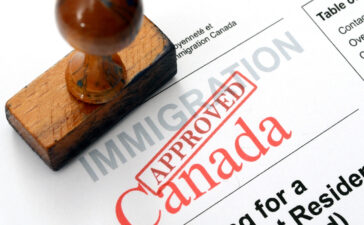Criminal Inadmissibility to Canada
When an individual enters Canada, they should be prepared to face several challenges. Among these are medical and criminal inadmissibility. This is a very serious issue, and should be considered by anyone who plans to enter the country.
Criminal Inadmissibility
If you’ve been charged with a crime in Canada, you may be inadmissible. This could prevent you from entering the country and could prevent you from working or staying.
In order to be admissible to Canada, you’ll need to prove that you haven’t committed an offense. You can apply for a Temporary Resident Permit (TRP), which is a temporary solution for inadmissible Canadians who meet certain criteria. It can be difficult to obtain, but it’s a viable option for those with criminality issues.
Among the various reasons you might be inadmissible, the most common is for committing a foreign act that is indictable in Canada. That means the charge must be in accordance with the standards of the Canadian criminal code. The only exception to this rule is if the offence was summarized in Canada.
Generally, there are two types of indictable offenses. These are serious and non-serious crimes. Serious offences include violent crimes that involve bodily harm to another person. Non-serious offenses include less serious charges such as assault.
Medical Issues
A medical condition can make an applicant inadmissible to Canada. This is because Canada’s immigration policy protects the health and safety of Canadians. Inadmissible people can appeal their refusal. The applicant must show that their condition poses no threat to public health or safety.
IRCC will determine whether the applicant is inadmissible based on the results of a medical examination. An IRCC-approved doctor will examine the medical records and perform a physical exam. He or she will also check for blood tests, urine tests and x-rays.
Applicants who are denied entry into Canada on medical grounds have the right to apply for a judicial review in the Federal Court of Canada. This can be done after a Procedural Fairness Letter is issued.
The IRCC must be satisfied that the condition does not pose a threat to public safety or the health of Canadians. To do this, the medical officer will consider the condition’s severity, duration and transmissibility. They will also take into account unpredictable behavior.
Temporary Resident Permit
The Temporary Resident Permit is a document issued by Canadian immigration authorities that allows a foreign national to enter Canada. While it does not offer permanent residency, it can help in cases of criminal inadmissibility.
In order to be eligible for a TRP, a foreign national must meet several criteria. Among these, a compelling reason for entry must be present.
Whether the traveler’s reasons for entry are work-related or purely recreational, entry must be deemed to be in the best interests of Canadian society. A temporary resident permit can be issued for a limited time, from a day to a few years.
Applicants for a Temporary Resident Permit are required to submit an application to the Canadian consulate. This application should contain a comprehensive list of the applicant’s supporting documents, as well as a substantial case for entry. If the application is not complete, it is likely to be rejected.
If a foreign national does not meet the requirements for a TRP, the immigration officer may refuse to issue a Temporary Resident Permit. A foreign national who has been denied a TRP may appeal to the Immigration and Refugee Board of Canada, or the Federal Court of Canada.
DUI Convictions
It is not uncommon for a person with a DUI (Driving Under the Influence) conviction to be denied entry into Canada. This can be especially confusing if you are travelling for business. Fortunately, there are a few options that you can consider.
The first option is to expunge the criminal record. This requires you to work with a lawyer in your home country. You must submit an application for an expungement. However, your crime will still appear in a background check.
A second option is to apply for Criminal Rehabilitation. If you have a DUI, you may be able to enter Canada after completing a rehabilitation period.
Another way is to get a Temporary Resident Permit. This is for travellers who will be in Canada for a specific period of time. These permits are issued for up to three years.
There are also several probationary programs available for people who have a DUI. These are usually available in a number of states. They do not require a criminal record, but they can have other restrictions.




